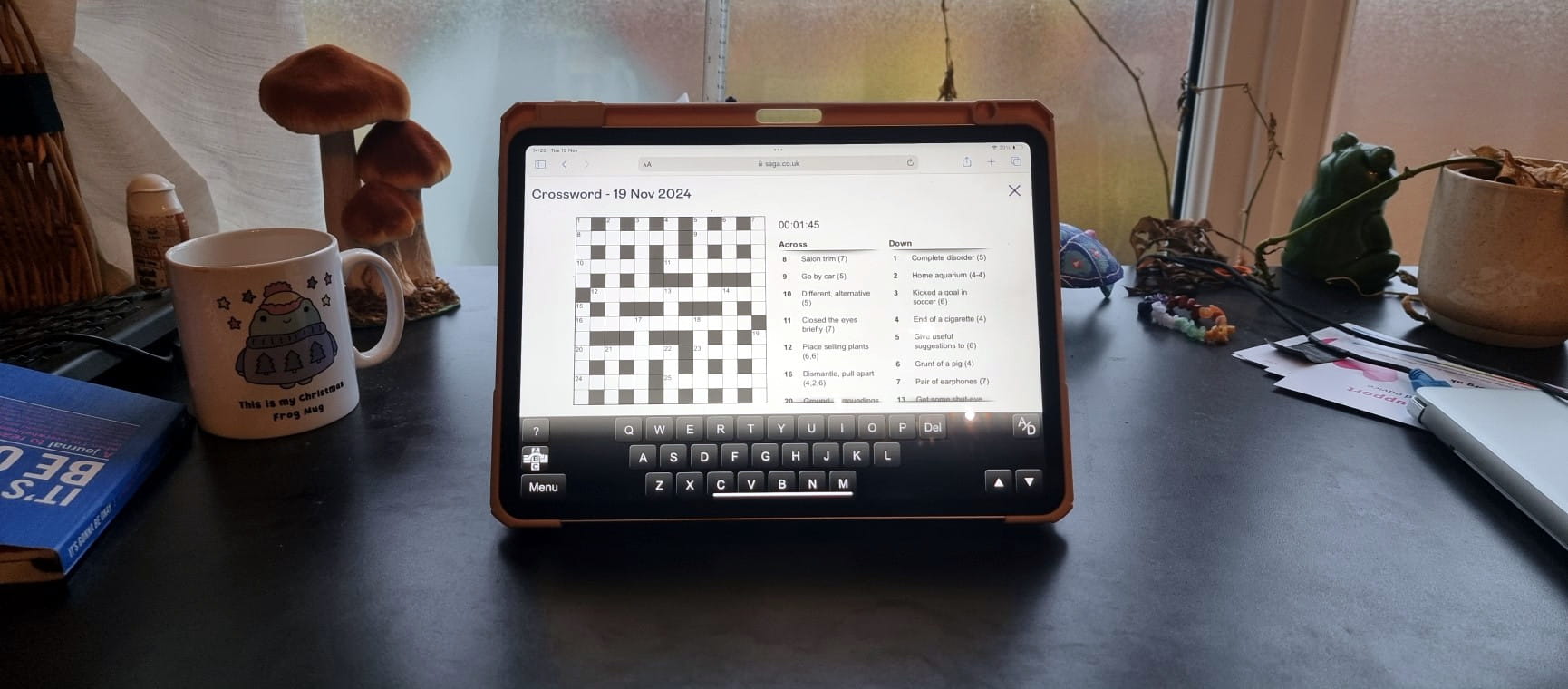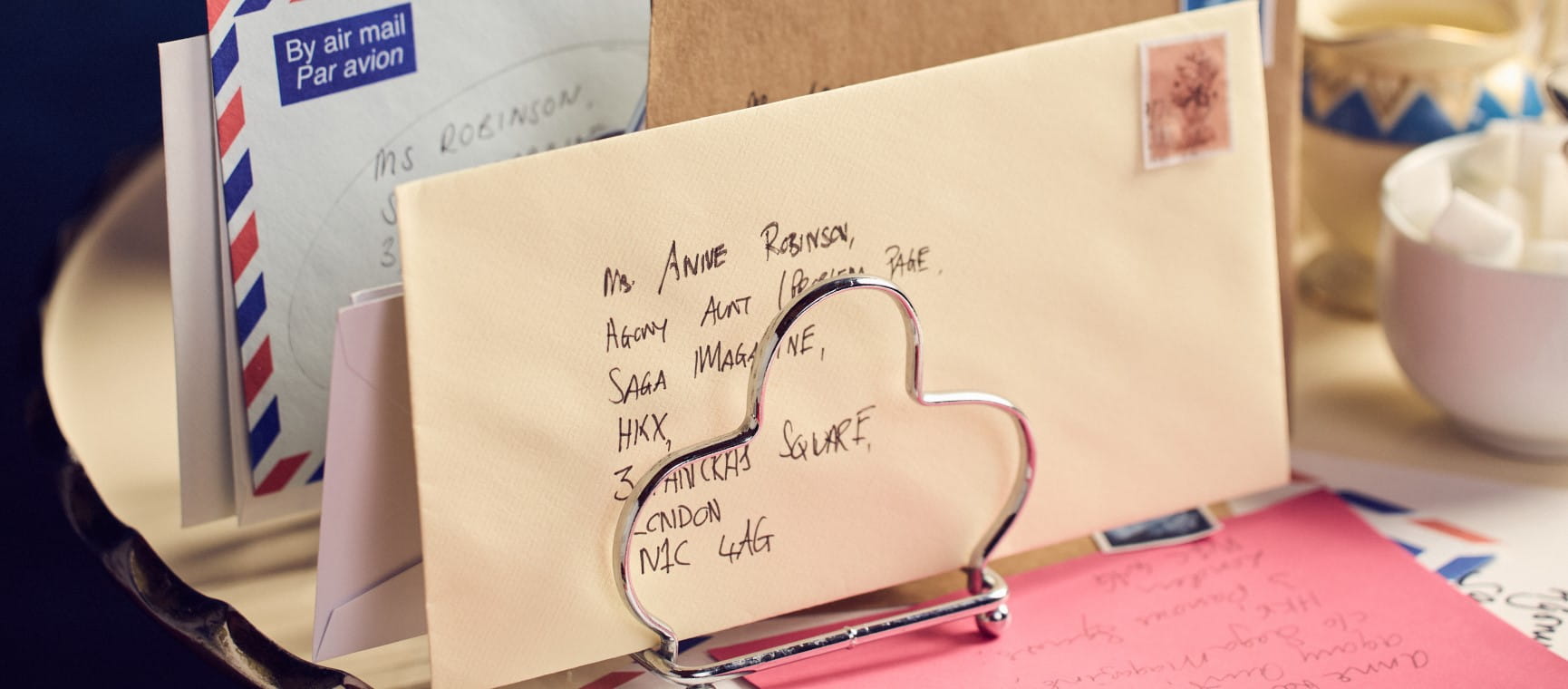
A few years ago in the Countdown studio, I decided to embrace the silliness of April Fool’s Day and deliver an origin of words that was entirely made up.
It involved the history of the phrase ‘the grass is greener on the other side’, for which I invented two squabbling farmers who were in intense competition over the verdancy of their land. I went into a fair bit of detail about their agricultural fisticuffs, but my tongue stayed firmly in my cheek throughout.
When I finished, I looked around expectantly, waiting for someone in the studio to laugh. Nothing, not even a hint of disbelief on the faces of either the audience or the crew. Crestfallen, I decided that was the last time I’d try to pull the wool over anyone’s eyes on national TV.
I probably shouldn’t have been surprised.
Although English is chock full of phrases that no one should ever take at face value – thankfully none of us fly off an actual handle, die laughing, or put our noses to a real grindstone – there are many other expressions that, for all their colour, really did begin with something very literal.
If I had to choose my greatest hits? They would definitely include the simple word ‘secretary’. Look at it head on and you’ll see it involves the word ‘secret’, for the original duty of medieval secretaries was to keep their boss’s secrets (to be fair, that’s probably still true today).
Any modern freelancer, meanwhile, might like to know that their early namesakes were knight-adventurers who were free to use their lances for payment.
Often, the very words that wear their hearts on their sleeves slink by unnoticed, simply because we have changed the pronunciation. We no longer think of breaking our night-time fast when we have breakfast, nor of becoming ‘at one’ with a friend we have offended when we ‘atone’.
Similarly, when we are alone we are ‘all one’ – there is something rather poignant in the fact that the ‘l’ migrated to join one of the ‘l’s’ and created the word ‘lonely’.
Oh, and an onion, rather wonderfully, is really a ‘one-ion’ because, unlike garlic, it is a single unit.
A cupboard, of course, was originally a board for cups. The ‘board’ here is in an older sense of ‘table’, which survives when we go for ‘full board’ on holiday or speak of ‘board and lodging’. And a wardrobe was a place for ‘warding’ or guarding expensive robes rather than the hundreds of jumpers we cram in there these days.
While we’re at it, who wouldn’t revel in the knowledge that those who first ‘escaped’ in the Middle Ages were criminals who shrugged off their heavy coats and scarpered, leaving their pursuers holding nothing but their capes? And I’ve always loved the fact that ‘illustrators’ are essentially adding ‘lustre’ to reality with their paintbrushes.
There are so many more examples whose stories sprinkle a little magic over the mundane.
There is social history within them too – when city-dwellers began to look down on those who lived in the countryside, they named them ‘heathens’, because they lived on the ‘heath’. They, on the other hand, were of course ‘urbane’, the sophisticated sister of ‘urban’.
As for ‘the grass is greener’, the real story is that the proverb comes all the way from ancient Rome, when the poet Ovid noted that ‘the harvest is always richer in another man’s field’. It’s hard to argue with either version.
It just goes to show: who needs April Fool’s when our language gives us all the entertainment we’ll ever need?

For over four decades, Saga Magazine has been bringing you inspiring stories, trusted advice, and articles that matter. Now you can enjoy every issue delivered to your door at our lowest-ever price.

The ultimate guide to Saga Puzzles, full of technical tips, tricks and hints.

With the start of the new financial year on 6 April, our money expert explains the changes to your pension, benefits and taxes.





